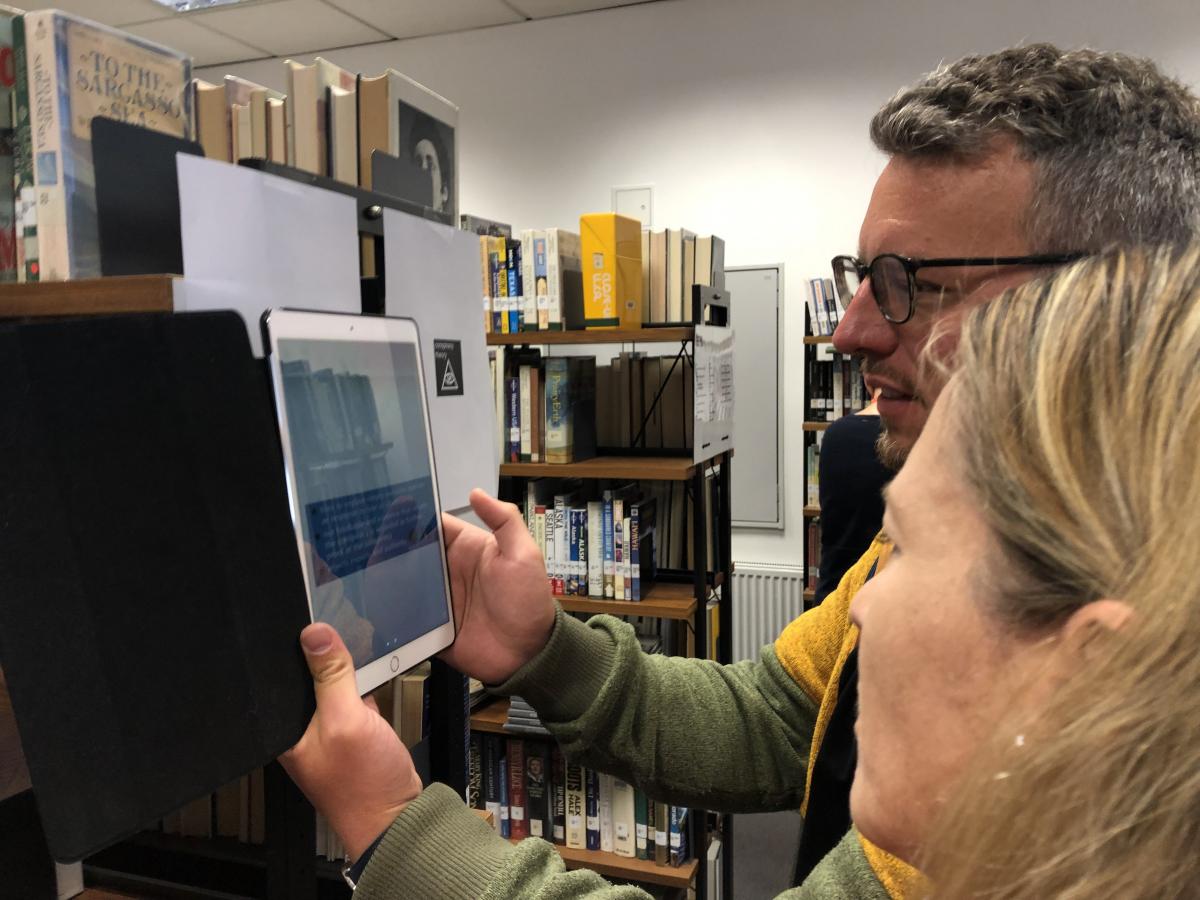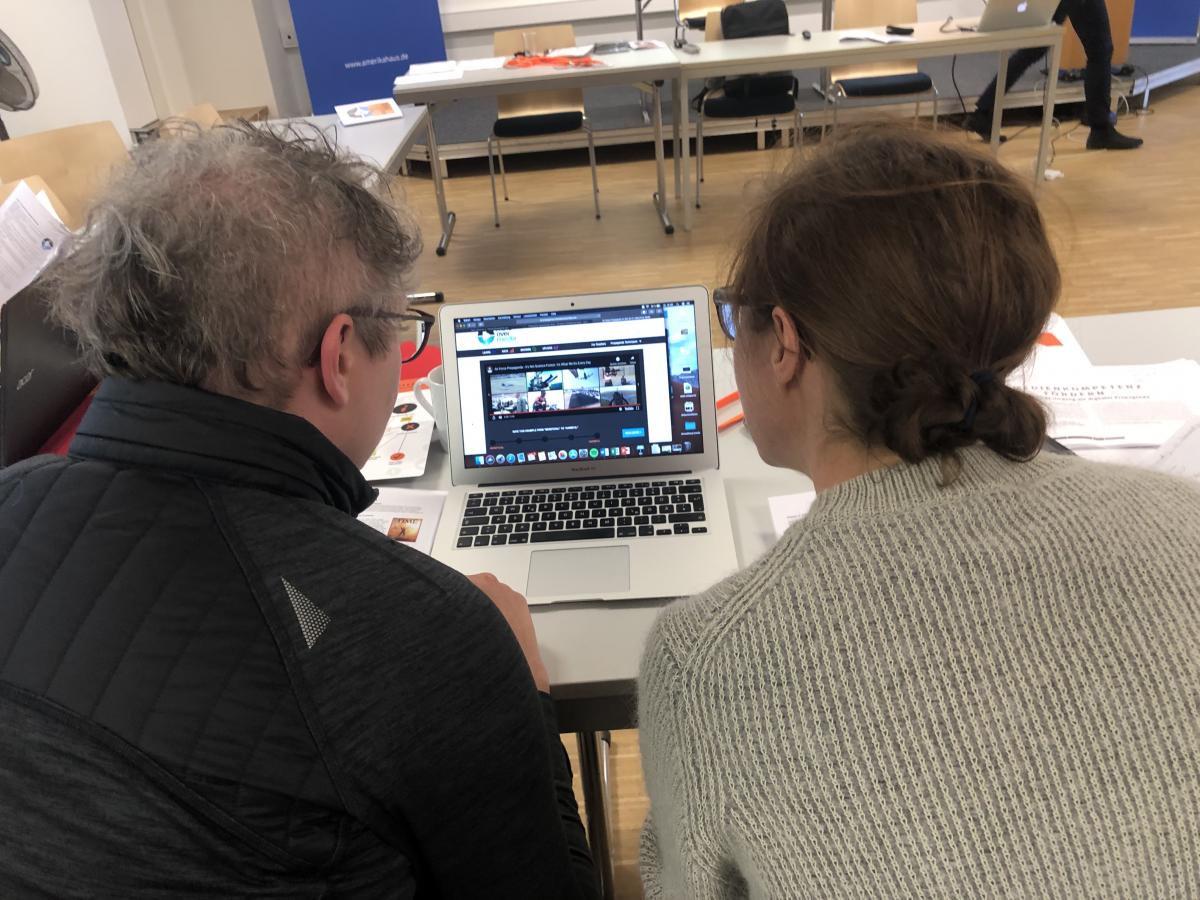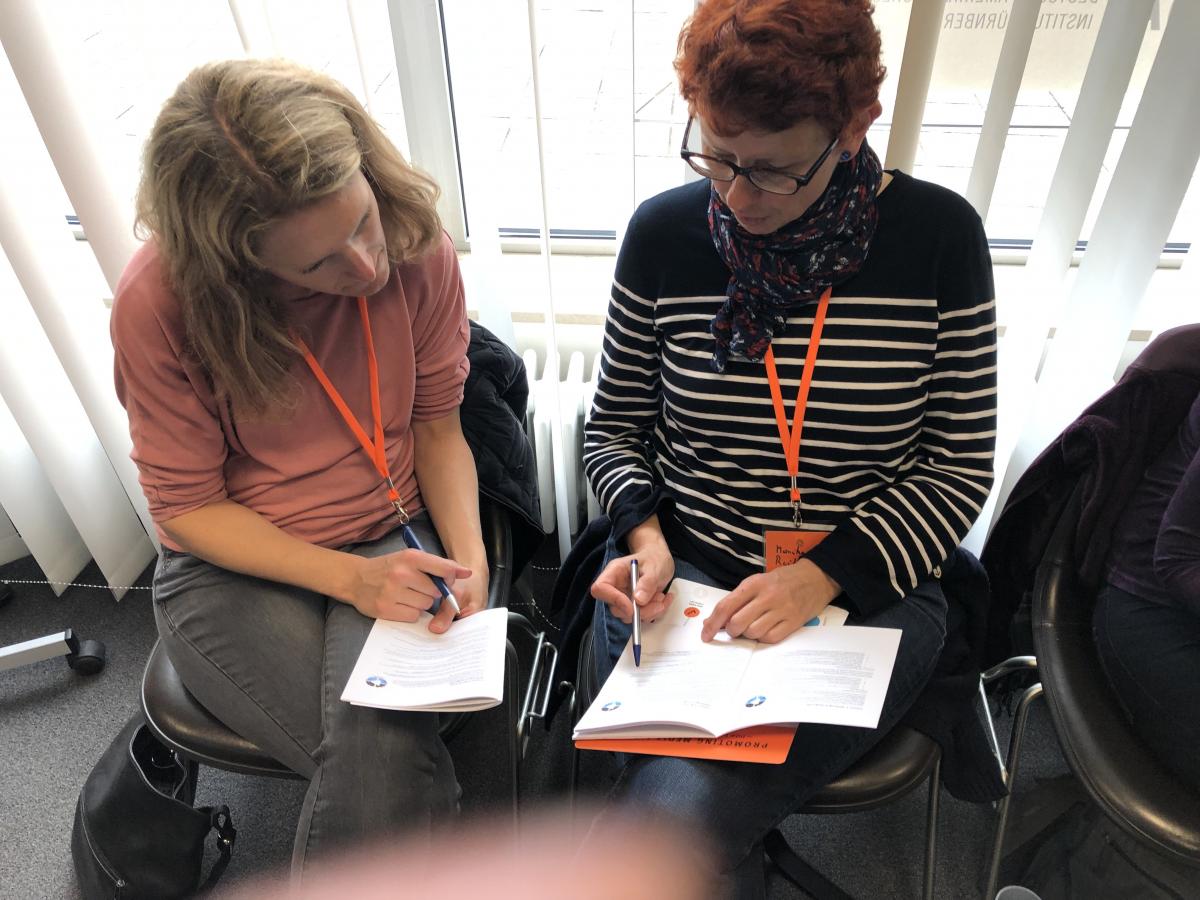May 6, 2019, Wuerzburg, Germany -- Propaganda is everywhere - in advertising, news and journalism, political communication, in entertainment, and activism. Today’s German youth now encounter new forms of propaganda through YouTube videos, memes and social media posts and more. Educators and teachers wonder how to explore such a complex topic with students in the context of their curriculum while fostering media literacy skills at the same time. Teachers benefit from opportunities to learn about innovative instructional practices that enable them to integrate both digital learning and media literacy education to support the development of students’ critical thinking and communication skills.
“There’s never been a more important time for young people to learn how to critical analyze contemporary propaganda,” notes Professor Dr. Renee Hobbs, director of the Media Education Lab at the University of Rhode Island’s Harrington School of Communication and Media, whose forthcoming book from W.W. Norton is titled, Mind Over Media: Propaganda Education for a Digital Age.
 Together with Professor Dr. Silke Grafe, Chair of School Pedagogy and Christian Seyferth-Zapf at the University of Wuerzburg, they offered a series of four half-day workshops with 100 German teachers during the week of April 29, 2019 in cities including Munich, Wuerzburg and Nuremberg. The program is sponsored by the U.S. State Department’s Consul General of Munich and hosted by Amerikahaus and the German-American Institute. “Students need opportunities to explore propaganda that they encounter when using Internet search engines,” said Christian Seyferth-Zapf, whose PhD dissertation examines the impact of propaganda education on German high school students. According to Stephen Ibelli, Public Affairs Officer at the U.S. State Department’s Consulate General in Munich, “Disinformation and propaganda are global. Children find it difficult to understand the what source of their news is. Teaching children to be more discerning is more important than ever before.”
Together with Professor Dr. Silke Grafe, Chair of School Pedagogy and Christian Seyferth-Zapf at the University of Wuerzburg, they offered a series of four half-day workshops with 100 German teachers during the week of April 29, 2019 in cities including Munich, Wuerzburg and Nuremberg. The program is sponsored by the U.S. State Department’s Consul General of Munich and hosted by Amerikahaus and the German-American Institute. “Students need opportunities to explore propaganda that they encounter when using Internet search engines,” said Christian Seyferth-Zapf, whose PhD dissertation examines the impact of propaganda education on German high school students. According to Stephen Ibelli, Public Affairs Officer at the U.S. State Department’s Consulate General in Munich, “Disinformation and propaganda are global. Children find it difficult to understand the what source of their news is. Teaching children to be more discerning is more important than ever before.”
The Bavarian state curriculum includes a provision for media and digital literacy in the new curriculum Lehrplan PLUS, which includes more than 6,100 schools of many different types. “When teachers integrate digital literacy into the curriculum in a systematic way, all students gain the necessary competencies to act in a self-determined, creative and socially-responsible way to be prepared to thrive in an increasingly mediatized world, said Professor Dr. Silke Grafe, Chair of School Pedagogy at the University of Wuerzburg and director of the Media Education and Educational Technology Lab, a research center that supports digital literacy in education.
 In the Mobile Propaganda and Disinformation Lab, some of the dynamic learning activities that were modeled for teachers include opportunities to define new forms of contemporary propaganda, evaluate the meanings embedded in political memes, recognize forms of search engines bias, and connect propaganda analysis to opportunities for student media production. According to Ulrike Bussmann, a high school teacher in Wuerzberg who participated in the program, “I can find a spot for teaching propaganda education in all my classes.”
In the Mobile Propaganda and Disinformation Lab, some of the dynamic learning activities that were modeled for teachers include opportunities to define new forms of contemporary propaganda, evaluate the meanings embedded in political memes, recognize forms of search engines bias, and connect propaganda analysis to opportunities for student media production. According to Ulrike Bussmann, a high school teacher in Wuerzberg who participated in the program, “I can find a spot for teaching propaganda education in all my classes.”
For more information, contact:
Christian Seyferth-Zapf, University of Wuerzburg